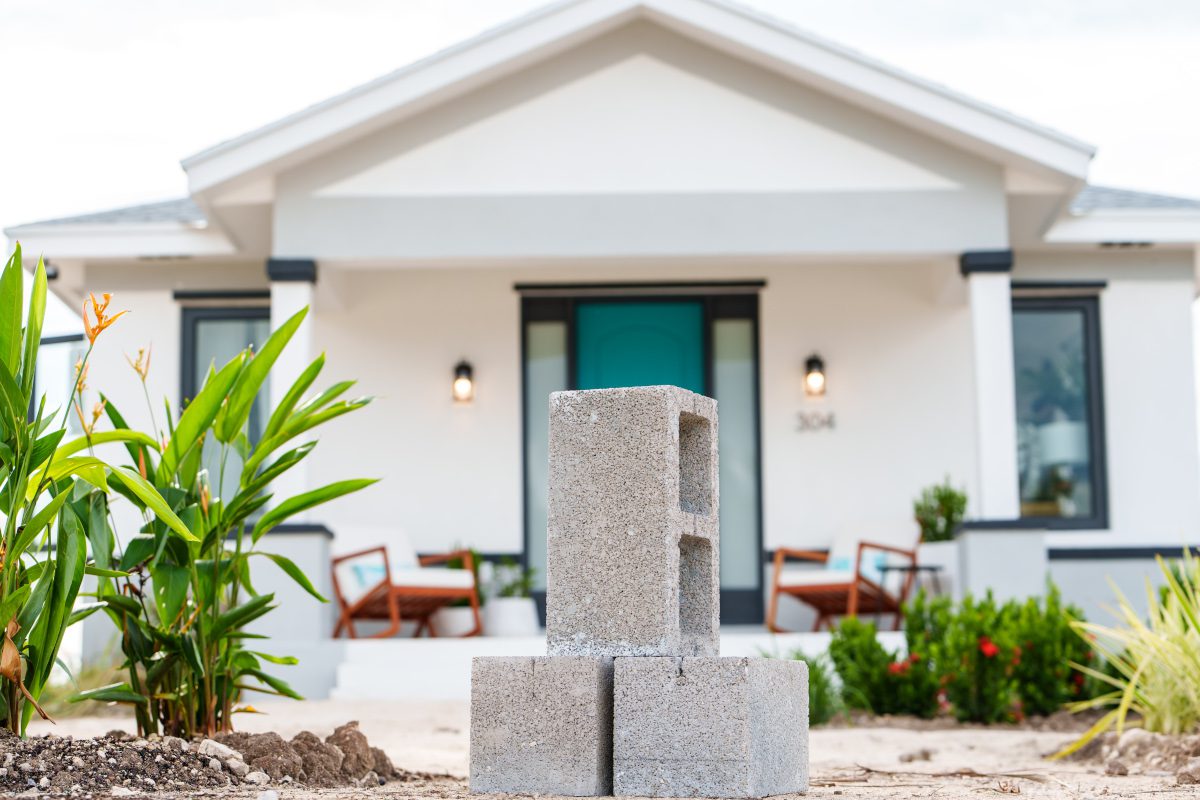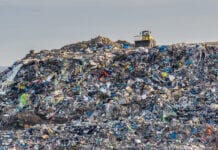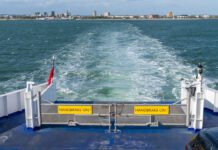
A building described as the world’s first carbon-negative ‘Home for the World’ has been showcased in Nassau, Bahamas, by Partanna Global, a developer of sustainable building materials.
The design is underpinned by the substitution of carbon-intensive Portland cement with a proprietary solution, described as a unique blend of natural and recycled ingredients activated by brine. “Partanna’s technology forms chemical compounds that interact with and capture atmospheric CO2.”
Said the announcement: “The 1,250 sq ft. home will actively remove and avoid 182.6 metric tonnes of CO2 – equivalent to the annual CO2 absorbed by 5,200 mature trees. Compared to a standard concrete-built home, which generates 70.2 tonnes of CO2 on production.”
The ‘Home for the World’ is seemingly the first of 1,000 planned homes announced in partnership with the Bahamian government, as part of an agreement signed at COP27.
While traditional concrete weakens when exposed to seawater, Partanna says its material strengthens upon contact due to its use of brine, a by-product of desalination – a process crucial for freshwater supply in many parts of the world.
Commenting on the unveiling of the building, Rick Fox, a former NBA player, Bahamian, and co-founder of Partanna Global, said: “The world is forecast to build an area equivalent to the size of The Bahamas every three years. The need to disentangle development from pollution has never been more pressing.
“Our ‘Home for the World’ is the answer to this challenge, and The Bahamas, having experienced the devastation of Hurricane Dorian first-hand, is the symbolic birthplace for our movement to change the way the world builds – for good.”
Cement is responsible for 9% of global CO2 emissions, while the UN projects that three billion individuals will require housing by 2030. The firm says its aspiration is to break this link between development and pollution.
A rapid upscaling of Partanna’s production is on the horizon, with existing facilities in Westlake, LA, and forthcoming expansion into the US, accompanied by strategic collaborations with Red Sea Global and Diriyah Company to revolutionize giga-cities in the Gulf.
The firm says its approach yields high-value, Verra-certified carbon credits and has achieved Interrek certification, affirming its concrete’s compliance with global standards. In terms of compressive strength, the firm says its concrete solution outclasses traditional counterparts, with its standard CMU block estimated to be 25% mightier than a conventional concrete CMU block.







